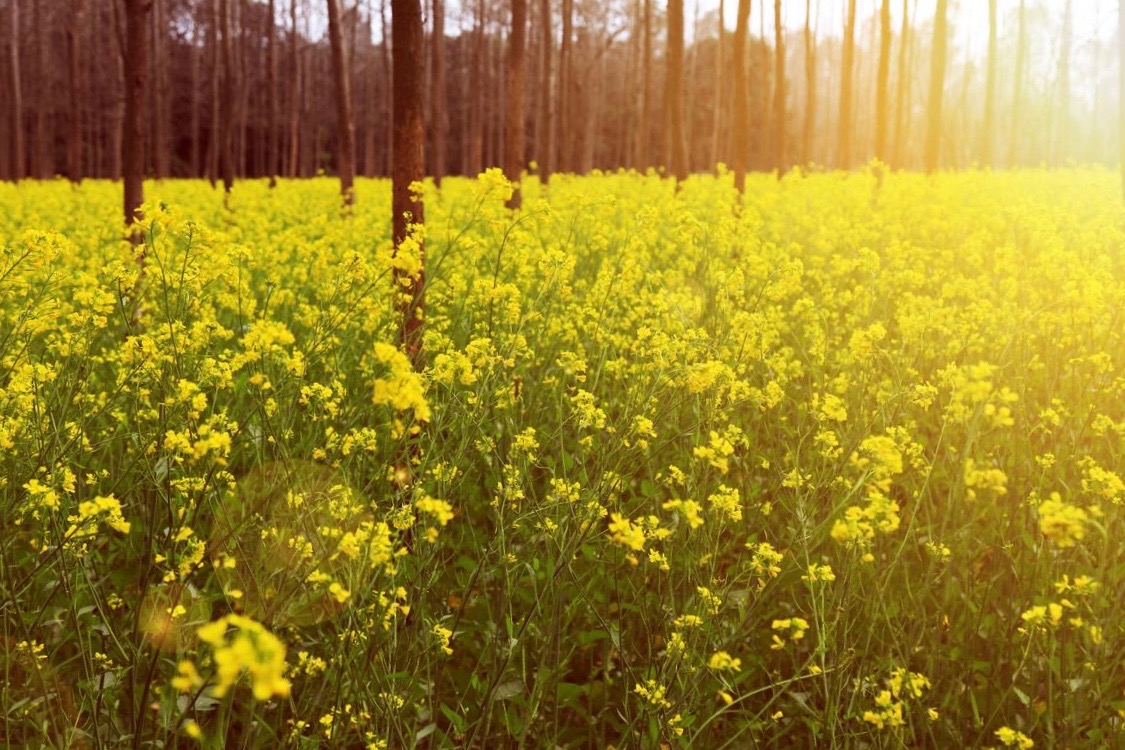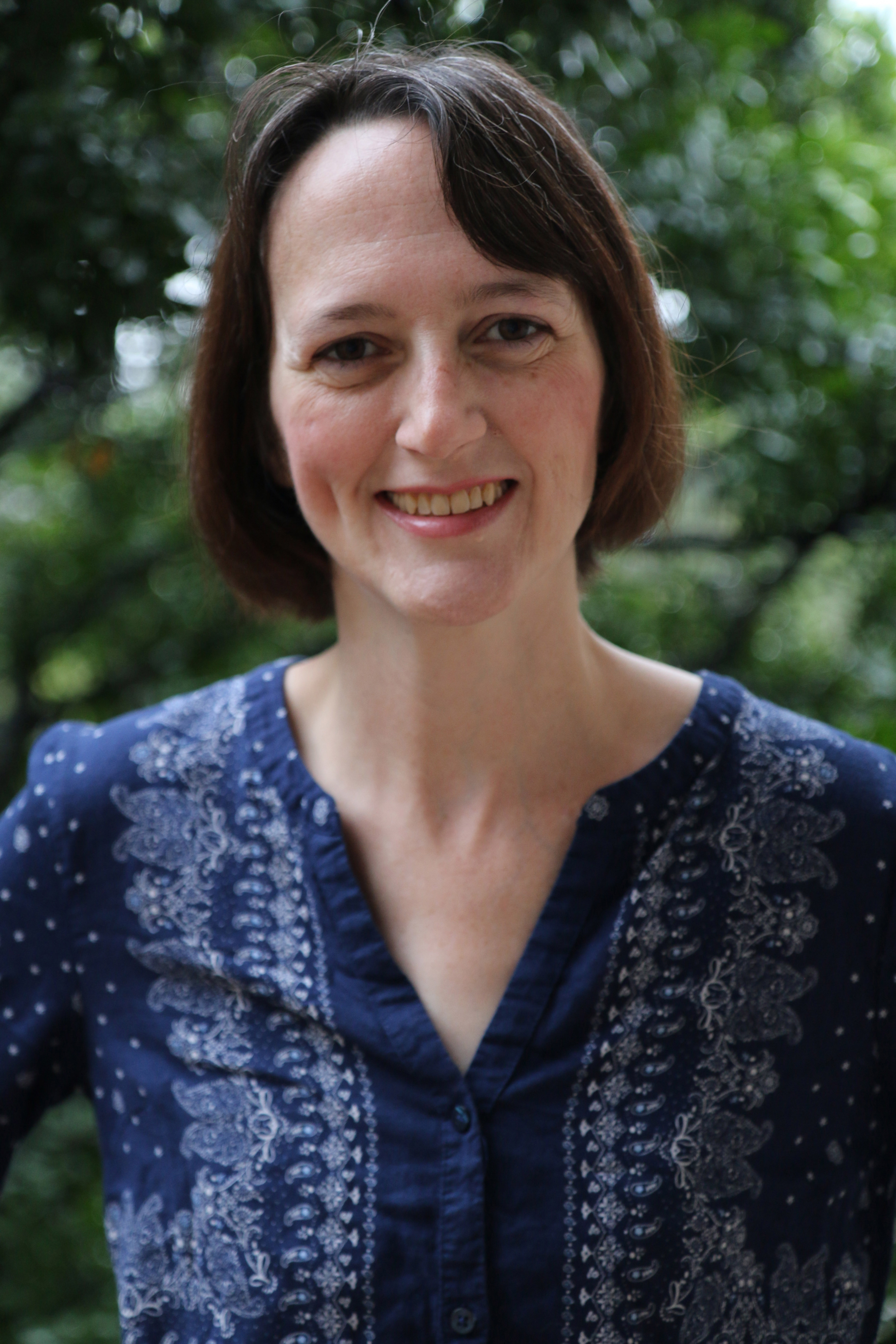
Did you know that mustard plants are considered by many to be weeds? This is because they are plants that, by virtue of their tiny seeds, can spring up easily and spread to places where we may not have planned for them to grow. And when they grow, they really grow. Because of this, many gardeners would say that mustard seeds – and the plants they become – do not belong in the garden.
But even the seed of a weed can flourish and become lifegiving: a safe place for birds to find food, shade, and a nest. In the kingdom of God, boundaries are crossed. Categories come into question. The tiny seed of a weed becomes “the greatest of all shrubs.”
And yet, for an audience steeped in images from the Hebrew scriptures of the great cedars of Lebanon, a mustard shrub evokes a much less grand vision of God’s plans and promises. Perhaps, as the theologian Pheme Perkins argues, “Jesus has pulled a swap. God’s creative presence can still provide abundantly for all creatures even in a region without mighty trees. For people who expect God’s reign to show itself in mighty deeds, transforming nature and nations, the mustard bush is hardly an appropriate sign. It is just an annual plant, after all, not a great tree sought by pharaohs and kings to adorn palaces and temples.” And yet, because of its smaller scale and more humble reputation, the mustard seed is the most appropriate sign of what it means for us to grow into a kingdom for God.
However, as Jesus well knew, the mustard plant is not great because of its size but, rather, because of what its branches can provide: shelter and shade. The mustard seed grows from the tiny seed of an often unwanted plant into a bush whose expansive branches provide for others.
Back in Ezekiel, we do hear about the lofty cedars – among the tallest and most revered of trees. However, God knows that even the lofty cedars need to be trimmed – not only so that existing trees will flourish, but also to allow for new trees to take root. We are like these cedars: We cannot flourish and propagate new life unless we first prune some springs and branches away – and then allow these cuttings to develop their own roots. These will then be transplanted into untilled soil to grow into something new, and so the cycle of growth and regeneration continues.
The kingdom of God expands in both of these ways: by planting the tiniest seeds, hoping the small grow up to become great; and by pruning the great cedars, ensuring that new life will spring forth from cuttings of the old. What is low is brought high, and what is high is brought low.
As the Lutheran pastor Nadia Bolz-Weber has observed, “I imagine that an image in which God is making you and your people the greatest and tallest and most majestic of all would be a comfort and hope to a people under Roman occupation. It certainly would have been a comfort to Ezekiel’s original audience, which was in Babylonian exile at the time. So listening to Jesus speak of what God’s kingdom is like could have been,” as Bolz-Webber imagines it, “one heck of a pep rally for these folks.”
God’s economy is based on reversals or incongruities. The weak become strong. The poor become rich. A little child shall lead them. The people of Israel were long expecting a kingly messiah who would come to save them with royal grandeur and military might. Instead, God sent them a savior born into poverty, a child of asylum seekers who fled with Mary and Joseph to Egypt. Jesus saved his people not by conquering or vanquishing other peoples, but by sacrificing himself.
So it makes sense that when God tells us about how we can expand his kingdom on earth, he tells us to go about it in a different way than many earthly leaders would. It’s not about making earthly empires great and gaining power over other people. Rather, growing from a tiny seed into “the greatest of all shrubs” is about growing into a plant – or a church, or a community, or a culture – that is, in fact, an ecosystem, one that provides sustenance and shelter to a diversity of living things.
As the scholar Suzanne Henderson observes, “Where the seeds of God’s kingdom do take root, they grow with abandon even alongside the plants that wither or seeds that disappear. Like the mustard bush, the kingdom will overtake its surroundings (4:30–32), but it does so organically and offers hospitable shade to ‘the birds of the air.’”
Meanwhile, back in Ezekiel 17, we hear about “the lofty cedar.” These tall and majestic trees are often used in scripture to symbolize power and might. Through the prophet Ezekiel, God tells us how he will take a sprig of the cedar, “a tender one from the topmost of its young twigs.” God himself will plant this twig – a small, pliable piece – on a “high and lofty mountain.”
God does this not to create some sort of shrine to himself, as many a human leader would. Rather, God is planting this young shoot on top of the mountain to build a kingdom through which he will provide a safe place for his people: “that it may produce boughs and bear fruit, and become a noble cedar. Under it every kind of bird will live; in the shade of its branches will nest winged creatures of every kind.” In this prophetic analogy, God is showing us that the kingdom we are to join him in building is one in which people are provided for – because this kingdom bears fruit. Not only that, but the kingdom we are to build for and with God is one in which diversity is at the core – there is room in God’s kingdom for everyone: “Under it every kind of bird will live; in the shade of its branches will nest winged creatures of every kind.” This is repeated, highlighting its importance to what God is telling us through this prophetic picture.
The title placed above this passage is “Israel Exalted at Last.” But God, through Ezekiel’s prophetic voice, means something different than what we might normally associate with “exalted.” The sprig becomes “a noble cedar” when it produces fruit, when it provides shade and a nesting place for winged creatures of every kind.
So, too, do we build an exalted, noble kingdom of God in this world when we provide for each others’ needs, give others a safe place to be, and welcome every kind of person. The kingdom of God, then, is not something that we look to experience only at the end of time, but it is a kingdom that God calls us to build now, in the world and the time in which we live today.
How can we build God’s kingdom now? Growth and new life require changes in state. A seed ruptures open whenever a new plant begins to germinate. A tall plant or tree requires pruning. A plant cutting must first form its own new roots in water before it can be transplanted into the soil and begin to grow.
The question we must consider is this: Are we willing to have parts of ourselves broken off, rooted, and re-planted by God so that we can grow into a noble cedar, embodying God’s provision and protection in this world? Likewise, are we willing to be tiny mustard seeds with the determination to grow into the greatest of shrubs – even when we grow within the boundaries of a garden in which we may at first be seen as just another weed?
It only takes a small tender sprig, planted in the right place and cared for, to grow into a noble cedar that bears fruit and provides shelter for every kind of creature.
 The Rev. Dr. Rebecca Bridges Watts is a senior in the MDiv program at Seminary of the Southwest and a transitional deacon in the Diocese of Central Florida. This essay was originally delivered as a sermon at St. Francis at the Engine Room, a church and community center in Tottenham Hale, London, in June 2018. To read more about her Ministry Across Cultures experience in London, see her blog at https://adventuresonthefarsideofthesea.wordpress.com.
The Rev. Dr. Rebecca Bridges Watts is a senior in the MDiv program at Seminary of the Southwest and a transitional deacon in the Diocese of Central Florida. This essay was originally delivered as a sermon at St. Francis at the Engine Room, a church and community center in Tottenham Hale, London, in June 2018. To read more about her Ministry Across Cultures experience in London, see her blog at https://adventuresonthefarsideofthesea.wordpress.com.

